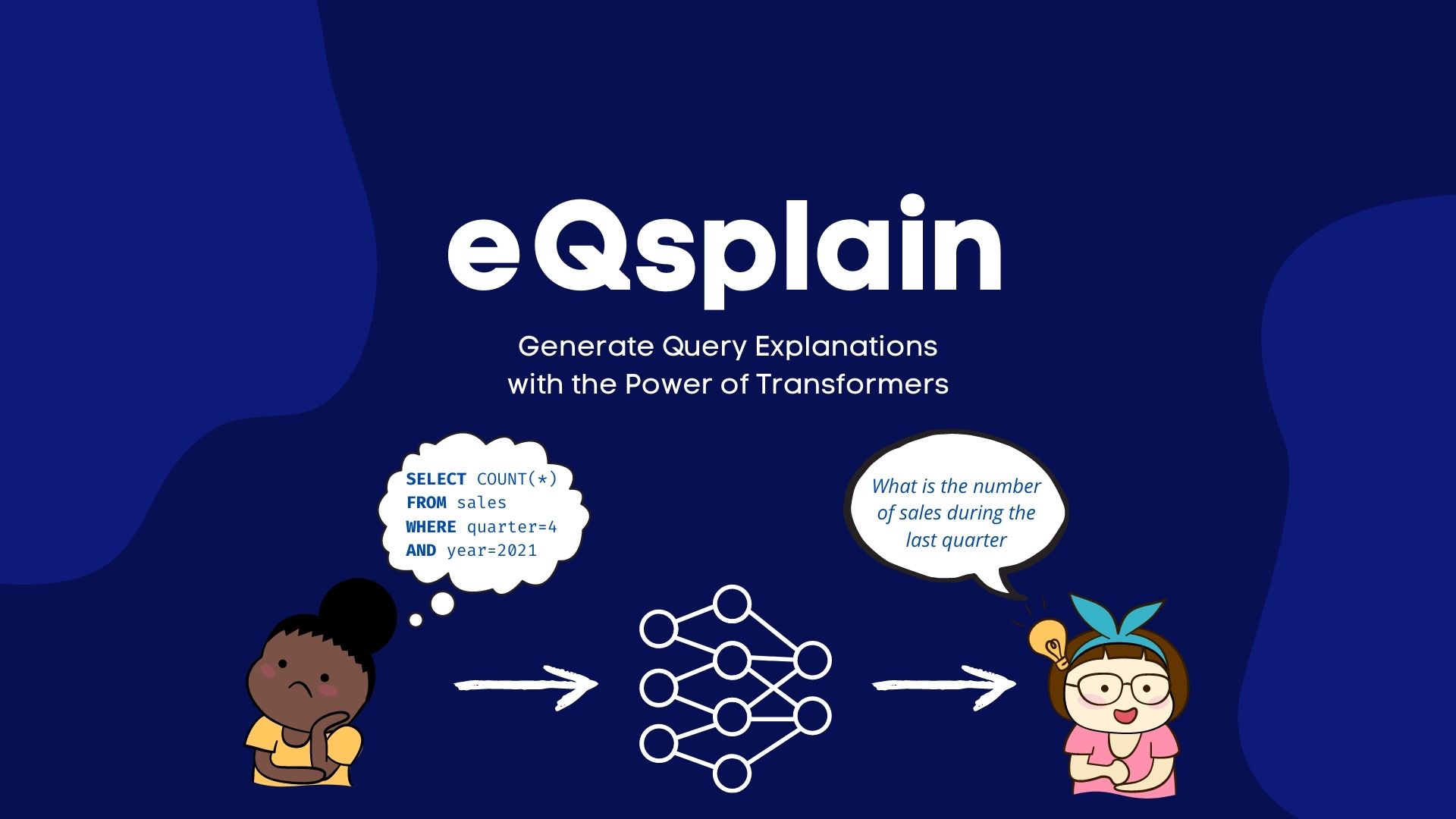eQsplain
A deep learning approach for generating natural language explanations of SQL queries
Try it out! eQsplain is now live, feel free to test it!
Motivation
In the age of the data revolution, more and more human activities, from business operations to medical research are dependant on data.
At the same time, immense amounts of information are stored in relational databases, which remain inaccessible without the knowledge of certain query languages is required.
While many research efforts are being made towards the translation of text to SQL, this does not suffice in order to create a complete Natural Language Interface (NLI) for Databases. The reverse process (SQL-to-text) is of equal importance in order for the user to seamlessly use a database with only their native language.

eQsplain generates query explanations, facilitating the use of databases by users without technical knowledge
About eQsplain
Model and Capabilities
The system is based on the T-5 Transformer-based Pre-trained Language Model, taking advantage of its capabilities to generate fluent and human-like natural language. eQsplain can learn to generate explanations for multiple query languages, such as SQL and SPARQL, as it is also demonstrated in our live demo.
Examples
Here are some SQL examples from the usecases of the INODE project, along with explanations generated by eQsplain, that help the user understand the intent of the query.
Research Project Management
SELECT m.title
FROM people p, projects pr, project_programmes pm, programmes m
WHERE p.unics_id = pr.principal_investigator
AND pr.unics_id = pm.project
AND pm.programme = m.code
AND p.full_name = 'Georgia Koutrika'
Find programmes of projects, for projects led by people whose full name is Georgia Koutrika.
Astronomy
SELECT p.u, p.g, p.r, p.i, p.z
FROM specobj s, photoobj p
WHERE s.bestobjid = p.objid
AND s.class = 'QSO'
Find the magnitude u, magnitude g, magnitude r, magnitude i and magnitude z of photometric objects, for photometric objects corresponding to spectroscopic objects. Consider only spectroscopic objects whose class is QSO.
Cancer Research
SELECT DISTINCT d.name , pvalue, expression_change_direction
FROM differential_expression AS de
JOIN disease AS d ON d.id = de.doid
WHERE gene_symbol in ('A1CF')
AND pvalue < 0.01;
Obtain a list of the cancer types that gene 'A1CF' is differentially expressed in with a p value cut off of < 0.01
